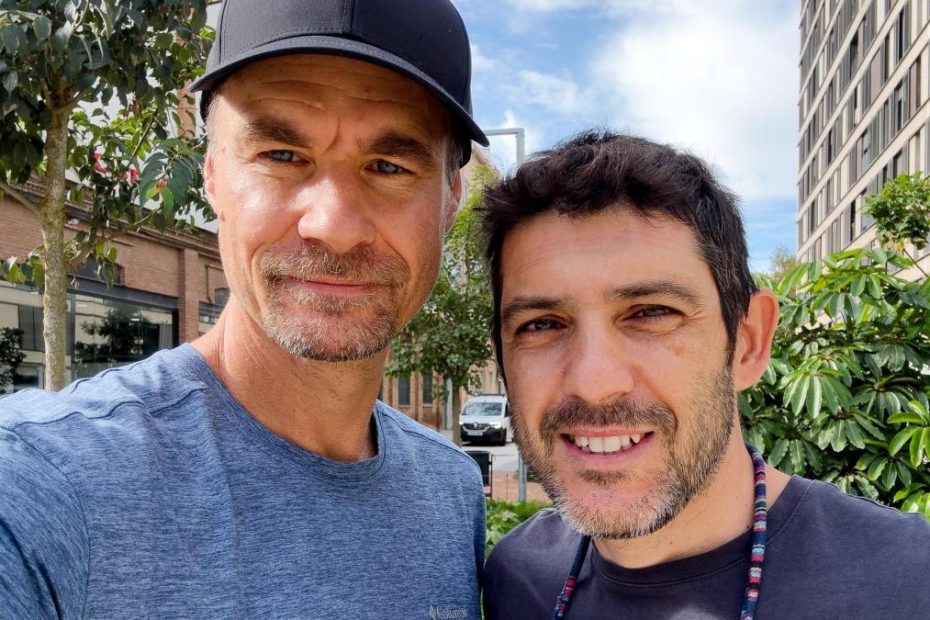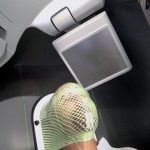
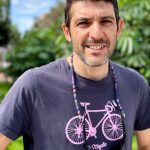
Just two years ago, David regained consciousness, disoriented, in a hospital bed, after suffering an epileptic seizure that he was not even able to remember. He didn’t know it yet, but his life had changed forever. After weeks of medical tests, the bad news was confirmed: a glioma. One of the most common and often most aggressive types of brain cancer. Fortunately, the characteristics and location of the tumor allowed it to be operated on and treated medically, although with an uncertain prognosis, since this type of tumor masses can reappear over time and, in some cases, are incurable. For this 43-year-old secondary school teacher, married and father of two children, life had just presented him with what is perhaps his greatest challenge.
The information is arriving progressively, almost in dribs and drabs. But as the medical tests continue, “when you manage to understand the extent of what is happening to you, the blow is so great that it shakes your entire world,” explains David. “To the point where it is difficult for you, even today, to answer that simple question of ‘How are you?'” he acknowledges. “Because you don’t know how you are. After the treatment you feel more or less fine, and little by little you can recover many of your routines, but somehow you are no longer the same as before,” he adds. For him, the consequences of the disease allow him to lead a relatively normal life, although they have forced him to withdraw from teaching.
I don’t know how much time I have left to live, but there is no point in giving up mid-game, you have to accept the situation and keep moving forward.
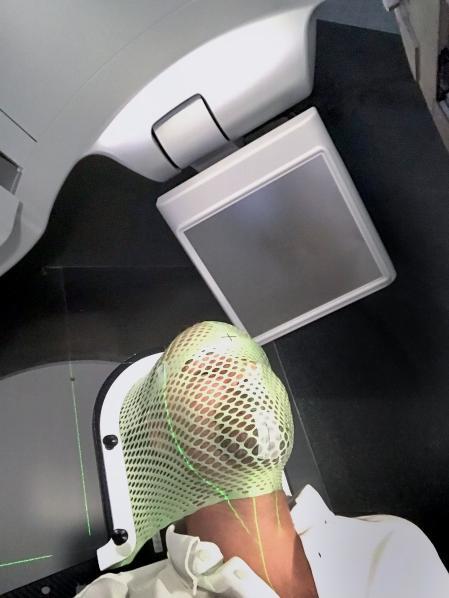
Tim, during a phase of his treatment
“You have no choice but to learn to live with the feeling that you are carrying a backpack full of explosives, which can explode again at any moment,” David confesses. An overwhelming mental weight that no one, not even the most stoic, can anticipate. “Like everyone, life has dealt us some cards, some good and some bad,” explains Tim, 48, who three years ago was also diagnosed with a glioma, in his case, to a more severe degree. “I don’t know how much time I have left to live, but there is no point in giving up mid-game, you have to accept the situation and keep moving forward,” adds naturally this father of a family who, as in the case of David, only publishes the first name in order to preserve your privacy.
One of those favorable cards that both have is their optimistic nature, which has led them to always face their circumstances from a positive angle. “Now I see reality with another filter, I have learned to look at life from a different perspective, to value what is really important and to live more intensely,” says David. Tim totally shares this vision: “Everyday problems go to the bottom of the list,” he jokes. “The illness has led me to learn a lot about myself, it is as if life has updated me as a person on all levels. I am a new Tim 2.0, but at a price that I wouldn’t wish on anyone,” he adds.
But, without a doubt, if there is a card that defines the game they are fighting and that helps them to continue smiling and look forward despite the complicated context they have had to deal with, it is the ace up their sleeve that they both have. saved. An almost intangible wild card, which Tim affectionately calls “the unicorn card.” “It is that card that makes us stay alive against all odds to break the statistics and survival curves,” he explains. And that is nothing more, nor less, than the energy of love.
I will never be able to thank my wife for staying by my side at all times, through thick and thin, and holding me when I can’t take it anymore.
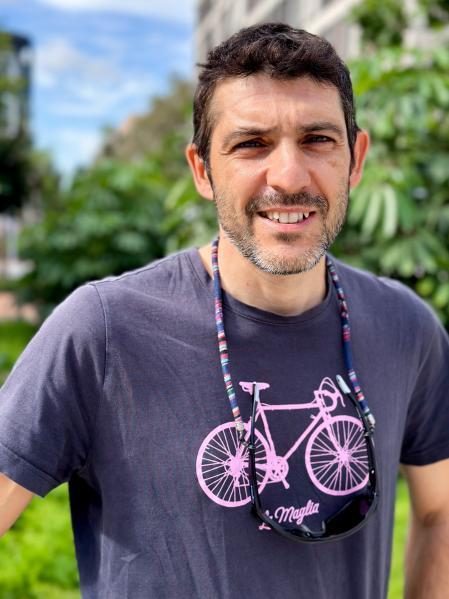
David, a secondary school teacher, has had to step away from teaching
The love for the work “of the team of internationally prestigious professionals who handle your case, who play your favorite record during the operation and return it to you signed with all the love in the world. That of your neurologist or your oncologist, who tirelessly resolves your doubts, who connects with you on a human level and makes you feel as if you were their only patient of the day; or that of your son’s friends from school, who appear dressed as unicorns dancing in front of the hospital to cheer you up after surgery,” details Tim. But not only that. Also the love of your wife, “who you will never be able to thank enough for staying by your side at all times, against all odds, and holding on when you think you can’t take it anymore,” says David.
And “the love for your children, whom you want to continue accompanying to school and see grow,” he says excitedly, and Tim agrees. An energy that has always existed in them but that, in some way, has become the driving force of their daily lives for both of them, and has allowed them to resist and adapt to the radical paradigm shift that their lives have undergone. “It is a disease that not only affects you, but also affects everyone around you, those you love the most,” admits Tim. “You overcome adversity almost more for them than for yourself, because they are your great team,” they both say without hesitation.
However, the shadow of death is something that they both inevitably keep in mind. Although they approach it from a perspective that has only been acquired by those who, like them, have learned to see life differently. “I’m not afraid of death,” says Tim, “at the end of the day, what sets me apart from other people is that I know, almost with complete certainty, what I’m going to die from,” he adds. “I consider it as my last great adventure,” he says. “Death is there, of course, but I don’t think about it much. What I do fear is how to die,” says David. “I don’t want to lose my faculties if I ever suffer brain injuries, nor do I want those I love to no longer have me if they need me, much less be a burden to them,” a fear they both share.
What sets me apart from other people is that I know, almost with complete certainty, what I am going to die from. I consider it as my last great adventure
David and Tim are friends. They met through social networks, following a fundraising campaign that the former started with the aim of collaborating with brain cancer research, right after his operation. “May we do our bit to help other people,” smiles David. Meeting was a coincidence that has helped them find that much-needed support in the grayest days, and that only a person who lives a situation similar to theirs can understand. “No significant changes compared to the last scan is our new greeting to tell us that everything is fine,” they joke.
With guys like this, who exude strength and positivity, it seems there is always room for hope. “My idea is to live long enough to wake up to the news that science has advanced enough to find a cure,” Tim declares, adding that “otherwise, there’s probably plenty of time for goodbyes.” Hopefully this long-awaited news occurs as soon as possible and the goodbyes, if any, take a long time to arrive. Be that as it may, Tim and David are a clear example of those people who face adversity with optimism, two unicorns who have not only won their game, but have also passed the game, giving us all a life lesson.
